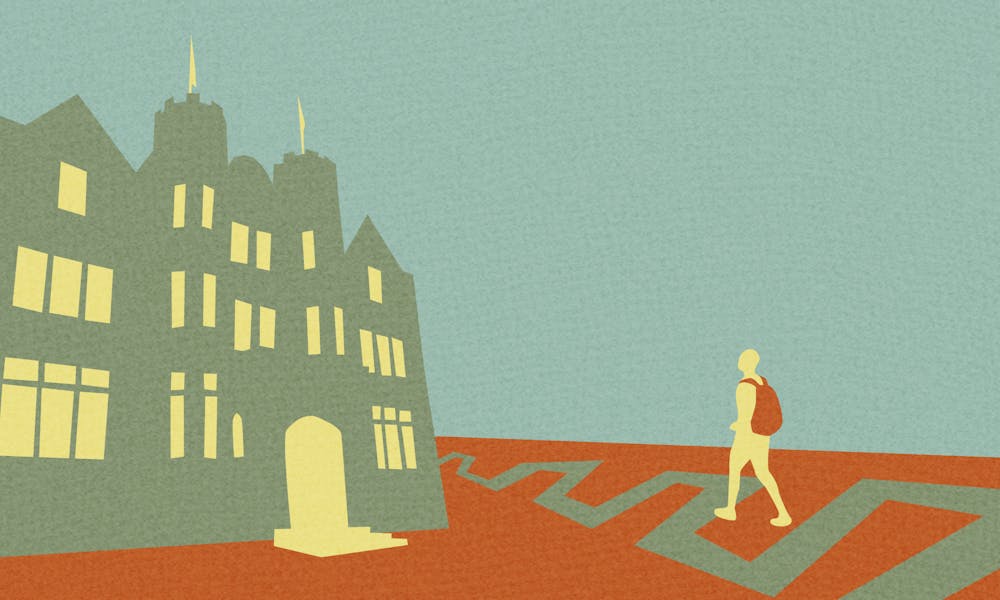
For the past few months, the Coalition Against Fraternity and Sexual Assault has argued against the presence of fraternity houses on Locust Walk. These efforts reached new heights last week when four members disclosed their identities at a public town hall. The CAFSA affiliates said they shed their anonymity to promote support and solidarity.
Currently, both individuals and student groups are invited to support CAFSA. As of now, more than 20 organizations have pledged solidarity with CAFSA – most of them cultural groups. However, none of the clubs currently in the CAFSA coalition are Greek life organizations. This should not be the case: the goals of fraternities and of CAFSA are not antithetical, and the two can work together to prevent sexual violence and promote diversity.
It is important to examine the actual aims of CAFSA instead of jumping to conclusions. CAFSA and its affiliates are not necessarily “anti-Greek life” or against all fraternities. The group’s mission statement promotes a goal of “transform[ing] fraternities on Locust Walk into cultural and wellness centers.” CAFSA further cites representation of minority identities and the prevalence of sexual assault in fraternity houses as reasons why Locust Walk should house other establishments. These statements, particularly the latter two, are goals that Greek organizations can also stand behind.
CAFSA publicizes anonymous accounts of sexual violence and racism at fraternities to claim that the high visibility of fraternities can be triggering. Of course, fraternities are not the sole source of sexual violence, but it is important for them to recognize their role in preventing it. The Interfraternity Council has encouraged sexual assault prevention by working closely with Men Against Rape and Sexual Assault and Penn Monologues. Fraternities can also be a place where men of diverse backgrounds find community. In continuity with these efforts, it makes sense for fraternities to support CAFSA if they believe in a Greek life community that should promote inclusivity and support victims of sexual assault within and outside of their fraternities.
Someone can be a Greek life member and think that Locust Walk should represent more diverse interests. Another can be a Greek life member and recognize how highly-public fraternity houses can be triggering to victims of sexual assault on a daily walk to class. One can also be a fraternity brother and agree that another fraternity – or, in fact, his own – should not take up such valuable real estate. Fraternities can provide a positive community within Penn while also thinking that their presence should not take up the space of other important needs on campus.
It is understandable if fraternities do not agree with all the methods or demands of CAFSA. However, it is important to not view issues as starkly black or white – that is, one does not have to be opposed to change in Greek life. We are at an important moment in Penn history for fraternities to reassess how to improve their community and not infringe on other important needs on campus. Oftentimes, the most effective change comes from within an organization. At the very least, the recent efforts of CAFSA should encourage a dialogue about Greek life’s presence on campus within Greek organizations to understand the meaning of taking up space.
Editorials represent the majority view of members of The Daily Pennsylvanian, Inc. Editorial Board, which meets regularly to discuss issues relevant to Penn's campus. Participants in these meetings are not involved in the reporting of articles on related topics.
The Daily Pennsylvanian is an independent, student-run newspaper. Please consider making a donation to support the coverage that shapes the University. Your generosity ensures a future of strong journalism at Penn.
Donate







